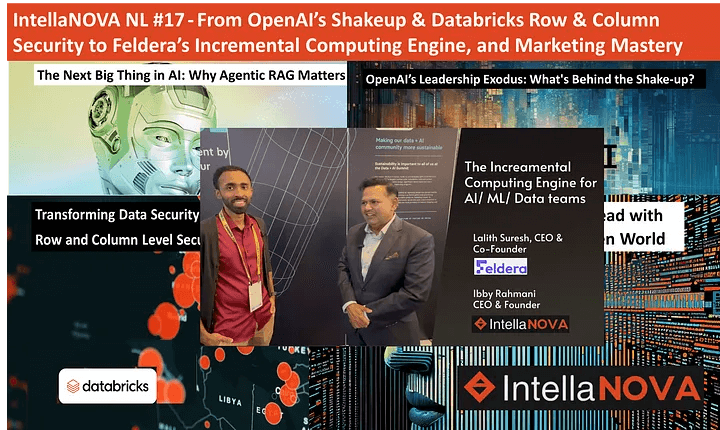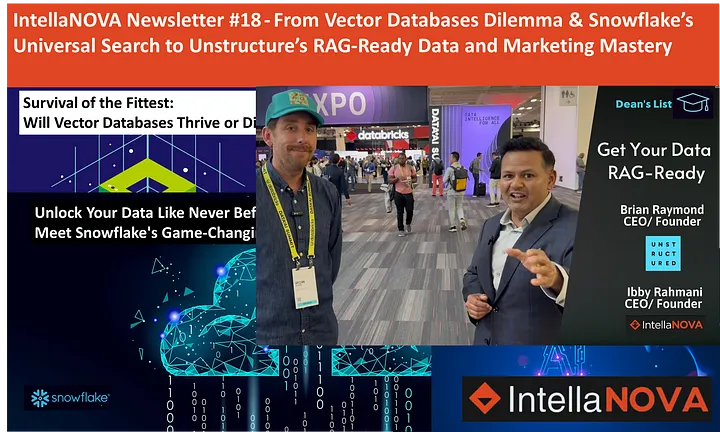
IntellaNOVA Newsletter #18 — From Vector Databases Dilemma & Snowflake’s Universal Search to Unstructure’s RAG-Ready Data and Marketing Mastery
Survival of the Fittest: Will Vector Databases Thrive or Disappear?
Vector databases have revolutionized data management with their specialized vector search and similarity capabilities, but their future appears uncertain as leading SQL and NoSQL databases, like PostgreSQL, MongoDB, and Redis, integrate vector search natively into their platforms. The rise of unified data platforms such as Databricks and Snowflake, which handle diverse data types and now offer vector search, has further diminished the need for standalone vector databases. Hardware advancements, like GPUs, and smarter indexing algorithms are also leveling the playing field, allowing general-purpose databases to efficiently manage vector workloads. This shift makes specialized systems less attractive, as organizations opt for simpler, cost-effective, all-in-one solutions that streamline operations. As vector search becomes an add-on rather than a standalone system, standalone vector databases risk obsolescence in the rapidly evolving tech landscape.
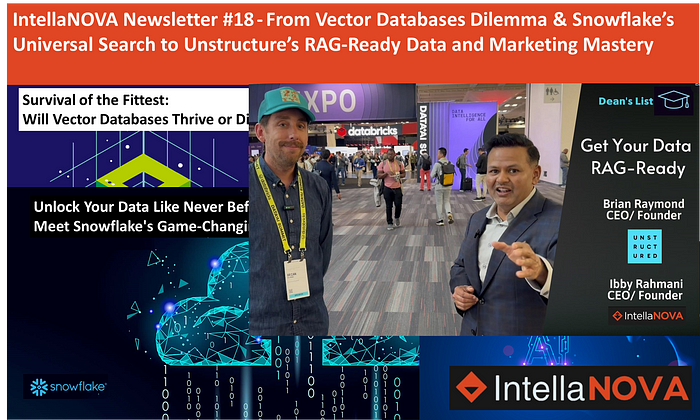
IntellaNOVA Dean’s List #11: The Most Powerful Data Transformation Platform for Vector Databases and Retrieval-based AI Models with Unstructured
At the Databricks Summit, I caught up with Brian Raymond, co-founder of Unstructured Data, to explore how their platform simplifies data workflows through innovative pre-processing services. Unstructured Data excels in transforming over 25 file types, including PDFs and emails, into clean, structured JSON, making it a valuable asset for enterprises. While it offers connectors like traditional ETL tools, its standout feature is its focus on data transformation for Retrieval Augmented Generation (RAG) models, crucial for utilizing large language models (LLMs) and vector databases. By converting raw data into structured formats and generating embeddings, Unstructured Data enables companies to enhance search, chat, and QA capabilities on vast datasets, streamlining the complex task of data preparation. Their service makes AI more accessible, allowing enterprises to focus on strategic initiatives rather than data processing challenges, positioning Unstructured Data as a key player in the AI-driven business landscape.
Watch the video on youtube
https://www.youtube.com/watch?v=W5W1jsom58o
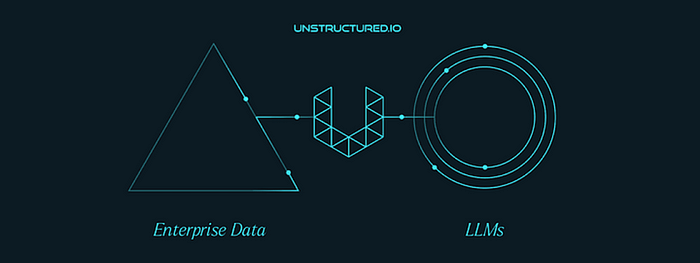
Unlock Your Data Like Never Before: Meet Snowflake’s Game-Changing Universal Search
Snowflake’s new Universal Search feature is a powerful innovation that transforms how users interact with their data by leveraging Neeva’s advanced search technology. It allows users to search across everything in Snowflake, from tables and views to documentation and marketplace datasets. Built to handle both simple queries and complex natural language phrases, this intuitive search system is designed to retrieve and rank results with precision, even accommodating typos. Powered by a bi-encoder model that converts table names into numerical embeddings, Universal Search ensures highly relevant results by ranking tables based on semantic similarity to a given query. Snowflake’s meticulous development process, including the use of a “golden set” of benchmark queries, ensures top-tier accuracy in search results, making it easier than ever for users to swiftly locate critical information and maximize their analytical potential.
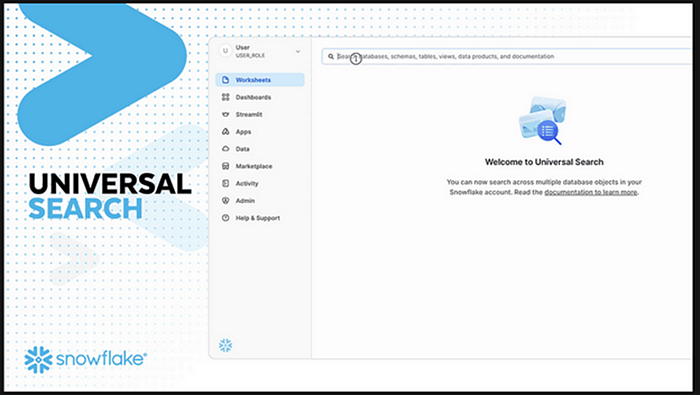
Marketing Mastery #20 — AI ROI: Prove It, Market It, and Profit from It
AI is transforming industries, but for product marketers and managers, the real challenge lies in proving its ROI within a broader go-to-market (GTM) strategy. To demonstrate measurable value, companies need to set clear, aligned objectives, track the right metrics such as time to market and customer lifetime value, and leverage real-world case studies that showcase AI’s success. Collaborating with data teams to build robust ROI models is crucial, as is tailoring messaging for different stakeholders, from executives to sales teams. By effectively communicating AI’s long-term benefits and market positioning, businesses can not only justify their AI investments but also leverage them for sustained growth and profitability.




